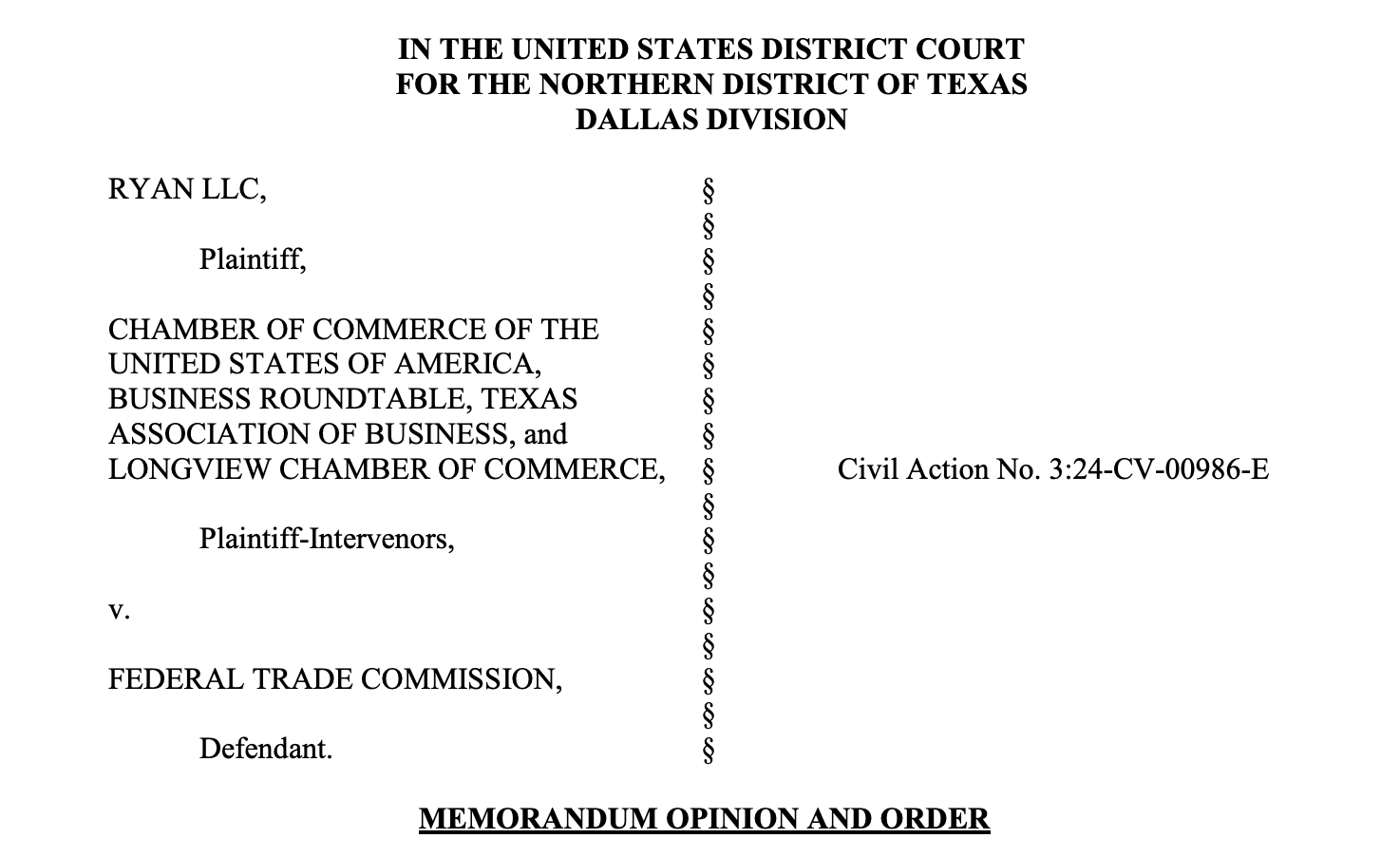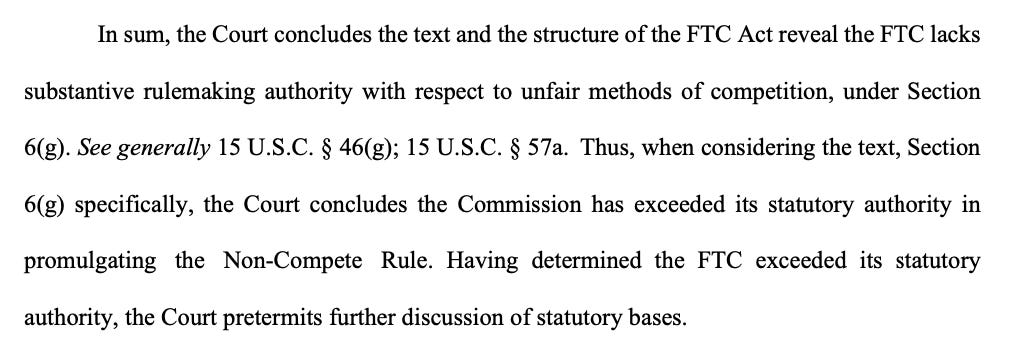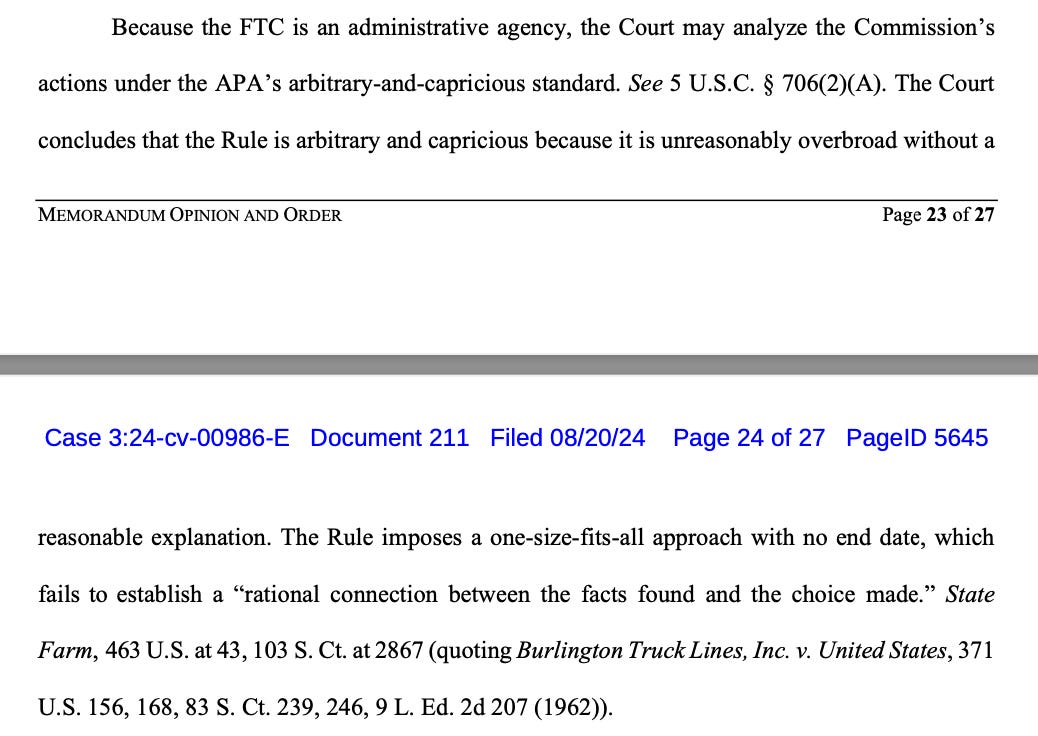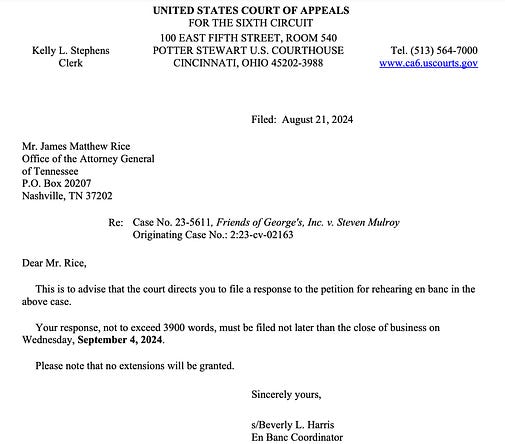Thank you for being one of more than 36,000 people supporting Law Dork with a free subscription! I am so grateful to everyone for reading, subscribing, and sharing Law Dork. That said, my independent legal journalism — like today’s report — does cost money to produce. Please consider a paid subscription, as little as $6 a month, to Law Dork today. If you do that, you’ll receive bonus features available only to paid subscribers — and support this essential reporting. I know that not everyone can afford it or prioritize a paid subscription, and, if that’s you, I am so glad you are here! Thanks, Chris Trump appointee blocks Biden admin's rule banning most noncompete restrictionsAnother day, another Biden policy blocked by a judge in the Northern District of Texas. Also: Sixth Circuit judges looking at full court review of Tennessee drag decision.Yet again, a single federal judge in the Northern District of Texas has blocked a Biden administration policy from being implemented nationwide. On Tuesday, the judge was U.S. District Judge Ada Brown, a Trump appointee, and the policy was the Federal Trade Commission’s rule banning employers’ use of noncompete agreements. The rule was set to go into effect on September 4. In a relatively brief, 27-page opinion, Brown found that the rule violated the Administrative Procedure Act — a federal law that sets forth how courts review federal rules — because it was both contrary to law and arbitrary and capricious. On the “contrary to law” conclusion, Brown held that the agency was not given substantive rulemaking authority by Congress in the provision of the FTC Act relied upon by the agency for the noncompete rule, earlier referring to it as a “housekeeping” provision. On the “arbitrary and capricious” determination, Brown pointed to both the breadth of the rule and its lack of end date as reasons to find that it violated the APA. Previously, in July, Brown had found that the ruling likely violated the APA and, as such, preliminarily enjoined the rule — but only from being enforced against the plaintiffs who had brought suit against the rule. Tuesday’s ruling contained no such limits. Instead, Brown found that, under the APA, the proper remedy was to fully “set aside” the rule. And that, she found, has nationwide effect under prior decisions of the U.S. Court of Appeals for the Fifth Circuit. Notably, the FTC, in its briefing in the case, had questioned the propriety of this interpretation of the APA. In a footnote, the agency stated, “The Commission preserves for further review the argument that the APA’s provision for the courts to “set aside” unlawful agency actions, 5 U.S.C. § 706(2), does not authorize the type of universal vacatur that Plaintiffs seek.” In other words, the agency was not arguing that in front of Brown, likely because it expected her to adhere to those prior Fifth Circuit decisions, but it could argue that on appeal or at the U.S. Supreme Court. Even outside of that, though, the FTC argued that “[t]he APA is not properly read to require vacatur—much less universal vacatur— of challenged action.” But, that is what Brown did on Tuesday, issuing a final judgment in the case that “sets aside” the rule as to all parties nationwide. “[T]he Rule shall not be enforced or otherwise take effect on September 4, 2024, or thereafter.” Filed by Ryan, LLC, a tax services firm headquartered in Texas, the U.S. Chamber of Commerce, Business Roundtable, and two Texas business associations quickly intervened in the lawsuit. In addition to Texas counsel, Gibson, Dunn & Crutcher LLP is representing Ryan and Sullivan & Cromwell LLP is representing the Chamber-led intervenors. The Texas ruling followed another judge having rejected a request for a preliminary injunction in a different challenge to the noncompete rule that had been filed in the Eastern District of Pennsylvania. The Pacific Legal Foundation, which represents the plaintiffs in that case, did not appeal the July 23 denial from U.S. District Judge Kelley Hodge, a Biden appointee. Brown’s ruling also came just days after the Supreme Court refused to disturb lower court injunctions blocking a federal sex discrimination rule issued by the Education Department under Title IX of the Education Amendments Act of 1972. There, though, none of the preliminary injunctions before the justices purported to have nationwide effect. Sixth Circuit drag case updateThe U.S. Court of Appeals for the Sixth Circuit is taking a close look at whether the full court should review a three-judge panel’s decision holding the Friends of George’s lacked standing to challenge Tennessee’s anti-drag law. After the Sixth Circuit issued the 2-1 ruling against standing for the drag group, Friends of George’s asked the full court to review that decision en banc. In a brief notice filed on Wednesday, the court asked for Tennessee officials to file a response to the request by September 4. Under the Sixth Circuit’s rules, such a response is only requested when a judge of the court asks for a response or when a judge has asked for a vote on the en banc petition. As such, it does appear that there is at least some interest in revisiting the panel’s decision. Law Dork will have more when we know more. You’re a free subscriber to Law Dork, with Chris Geidner. To further support this independent legal journalism, please consider becoming a paying subscriber. |




